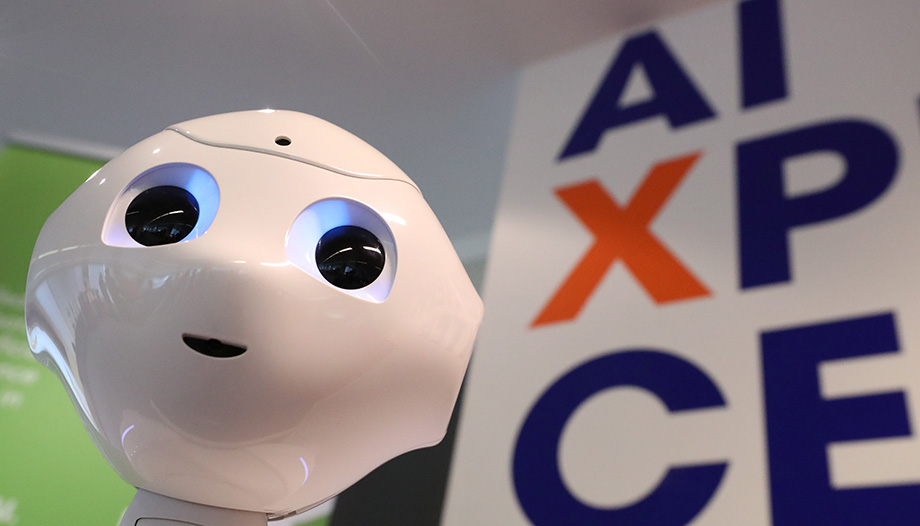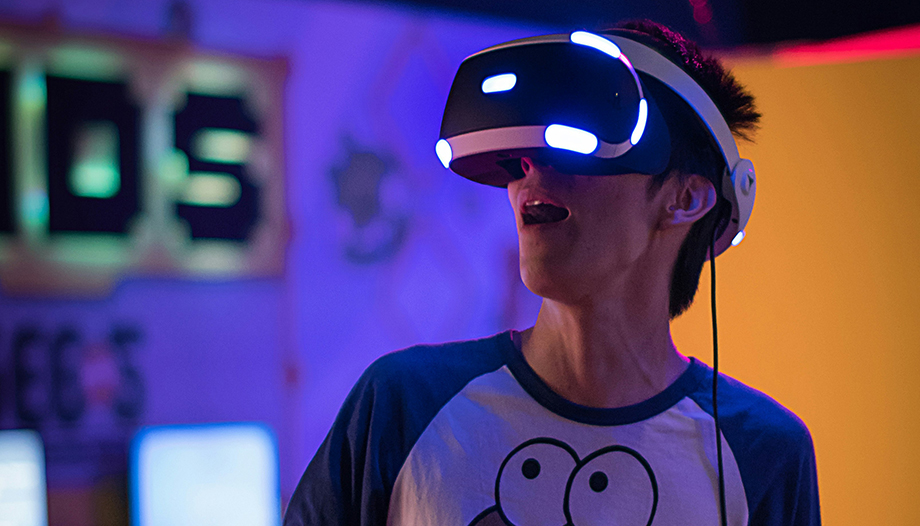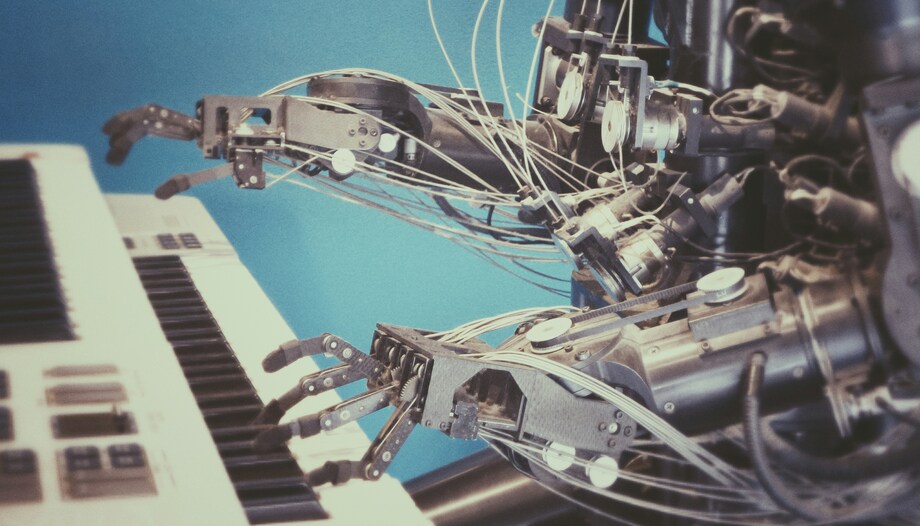The title of this contribution may come as a surprise. The enormous advances in the field of Artificial Intelligence (AI) in recent years have made its presence a reality in almost all areas of human activity. From image recognition to text generation and the ability to identify hidden patterns in a multitude of data, AI is now an unavoidable tool for society. Its ability to find novel problem-solving strategies through deep learning and its increasing speed in information processing make it a safe companion for the humans of today and tomorrow.
However, despite its occasional successes, it does not seem that Artificial Intelligence can develop a general intelligence similar to the natural intelligence that we humans enjoy. At present, Artificial Intelligence is rather a set of "Artificial Intelligences" in plural: several algorithms supported by different artificial neural networks, each of them specialized in solving similar but specific problems.
Humanizing Artificial Intelligence
So, beyond finding ingenious solutions for certain tasks, does Artificial Intelligence have anything to say about what it means to be human? Can it be a teacher of humanity? At this point, the problems generated by an immoral use of this technology will surely come to mind. Shouldn't we rather focus on those human values that should be included, as far as possible, in the different artificial intelligences?
Certainly, the use of Artificial Intelligence must be humanized. Welcome are the directives and initiatives that, at a personal, social and political level, can be carried out to limit the consequences derived from the misuse of this powerful tool. We protect our personal data, we fight against piracy and we put filters on the Internet to prevent the most vulnerable from accessing harmful content. There is a growing sensitivity in this regard in practically all sectors and steps are being taken in the right direction. At the same time, establishing legal frameworks to address the potential risks of Artificial Intelligence, although necessary and essential, should not make us lose sight of what is at stake. However well-intentioned it may be, legality alone cannot prevent the misuse of Artificial Intelligence at any cost.
However, this is not directly the focus of the reflections. By affirming that Artificial Intelligence is a teacher of humanity, the considerations go into a deeper level: what does Artificial Intelligence teach us about our innermost human core? Can contemplating technological advances help us to rethink and revaluate what it means to be human? I think so, even if the practical consequences of all this are not immediately visible.
Artificial and natural
Artificial Intelligence is a product of human intelligence. Is there a frontal opposition between the natural and the artificial that allows us to better understand ourselves as opposed to machines? It is doubtful, because in a certain way it is natural for human beings to produce artifacts. The artificial is in many cases a development and completion of the natural. Moreover, the boundary between the two fields is not always clear: is a living being artificially conceived, genetically modified, cured or improved by prostheses or artificial products artificial? The boundaries can be blurred. However, the myth of Frankenstein's monster should remind us that biology does not seem to be accidental in human beings.
Moreover, and more radically, that man comes from a natural evolution that has been going on for millions of years may suggest why it is not so easy to "produce" people. The necessity of evolution for the appearance of intelligent beings on Earth (and we do not know if on other planets) is an evident sign that the biological character of human beings is not a mere support, as some radical transhumanists would like to think, but a necessary and defining condition.
To see if a produced Artificial Intelligence can aspire to come close to the human being, it would be necessary to "let it evolve" without hindrances or restrictions of any kind. But that does not seem to be what we want with Artificial Intelligence. The artificial is always something that is subtracted from the evolutionary flow of nature to carry out specific purposes. We ask them of our toaster and our smartphone, each at its own level. In this sense, the artificial is never natural.
The question of purpose
The above considerations lead us to a second point, often forgotten by the staunch supporters of an AI that can surpass the human being: the question of ends. What is an end? What does it mean to have ends? Although modern science has put the question of purpose in nature in parentheses, paradoxically, purposes reappear when we try to understand the behavior of living beings, who almost always act with a view to something.
In living beings, purposes arise naturally: they are inscribed in their nature, we could say. AI, on the other hand, always operates on the basis of an external purpose imposed by the programmers. Regardless of the fact that, through deep learning, new "ends" may apparently emerge in the different Artificial Intelligences, no product carries in itself the inclination towards any purpose.
In the case of the human being, the question of ends appears with greater clarity in relation to the capacity to channel the yearning that each one has to be completed. The person has natural desires that aim at ends that complete and complement him. Now, what is the ultimate end of man? The generic answer to that question is happiness (classical ethics perspective), holiness or communion with God (believing view) or generic help to others (philanthropic perspective). The key point here is that such an end is not predetermined in a concrete way. Rather, depending on the stages of life and the contexts in which a person lives, the way of conceiving the general end is interpreted and developed in different ways. There is therefore no teleological determinism.
Artificial intelligence, determinism and freedom
Someone might object that, in the future, if we have a quantum version of AI, perhaps such determinism will not be present in them either. But that would be to misunderstand the argument, which has to do not so much with the processes of determination as with life. Living means being able to establish new ends in new contexts, given by the environment, and to concatenate the new ends with the previous ends, in the singular and unrepeatable history of each living being.
This process occurs in a special way in the human being, because it entails the use of freedom as self-determination: the capacity to want in a way that is coherent with one's personal history what intelligence presents as good.
The teleological process in humans is maximally creative, because each person is capable of recognizing and desiring as a human good that which underlies and is hidden in each vital situation. It is the creative freedom of a spiritual being who, living in the "here and now", is capable of transcending it: he is capable of putting the "here and now" in relation to the whole of life, even if imperfectly. That is living humanly and that, ultimately, is growing as an individual of the human species. It does not appear that AI, regardless of its physical support, functions in this way. No AI lives, because to dedicate oneself to solving concrete problems, imposed from outside, is not the same as living and posing problems.

The limits of knowledge
The question of ends and life is closely related to knowledge. In fact, many authors have defended a basic continuity in nature, a direct proportionality between life and knowledge. The way of perceiving the world is specific and particular to each living being, because it is an essential part of its way of living, of being in the world.
In the case of the human being, his being in the world reaches a practically unlimited extension. Although the external senses function within a certain range of stimuli, human beings are capable of going beyond this, thanks to their intelligence, and of knowing that there are more things than those immediately perceived. For example: we are able to "see" beyond the visible spectrum of electromagnetic radiation, or to "hear" beyond the spectrum of frequencies audible to a human being. Moreover, without possessing any sense of gravity, we can detect the ripples of space produced by interactions between black holes in the night of time.
Although every experiment must end up offering something sensible to the experimenter, the human being is capable of following the trail of physical correlations that occur in nature to unsuspected limits. A good part of this capacity is manifested in the advances provided by science, one of the most spiritual achievements of our species.
However, an essential component of human knowledge is our awareness of being limited. What may seem like a contradiction is not. Our desire to know is potentially unlimited, but we are aware of this because we usually experience knowledge as limited. A decisive consequence of this is what it entails to be a person of integrity: someone who does not confuse his or her knowledge of reality with reality itself.
Artificial Intelligence and mental illness
Knowledge refers to reality, but does not exhaust it. Along with other capacities, human knowledge is called to extend in an unlimited way, but it is never unlimited in the present. What you know, feel or experience is not reality, many psychologists tell their interlocutors. Not only to make them recognize their finitude, but to remind them that they are not the creators of truth, not even the truth about their own lives. This is the core of much of mental illness.
Can an Artificial Intelligence get sick like this? No. For the simple reason that no AI distinguishes between its "knowledge" and reality itself. Someone might object that there are Artificial Intelligences that "sense": they have sensors that receive information about reality and even "choose" which information to process and which not to process. But that is not the problem. The problem is that the "input-processing-output" scheme of an AI is always closed in itself. Even if the content of this scheme is made flexible so that it can change in successive iterations, at any given time only this triad exists for the AI (or for the hardware that carries out the algorithm, if you prefer to look at it that way).
Representation and reality
At no time can there be a differentiation between knowledge and reality, specific to human beings, for the simple reason that every human being is born with an interest in the whole of reality while AI is produced with a particularized purpose, even if it is to simulate a certain "concern" for unprocessed data, which ends up becoming a new entry in the iterations of algorithms.
To a large extent, the success of contemporary Artificial Intelligence comes from overcoming the limitations of an early AI that rigidly identified logical symbols and rules with physical hardware processes. It has been necessary to relax this identification for AI to improve dramatically. But Artificial Intelligences will never be able to be "sane", to have what Brian Cantwell Smith calls "good judgement" ("The Promise of Artificial Intelligence: Reckoning and Judgment"The systems that in themselves are not capable of understanding what their representations are about do not authentically relate to the world in the way their representations represent it. Systems that in themselves are not capable of understanding what their representations are about do not authentically relate to the world in the way their representations represent it. The latter is something that can occur only at the personal level.

The religious dimension
Finally, it is interesting to analyze the question of the limits of a potentially unlimited knowledge in the religious sphere. Classical thinkers considered that there is a natural desire in human beings to see God. This paradox caused many problems for the theology of the two orders: natural and supernatural. How to combine the two orders? How could there be a natural desire for a supernatural reality?
A theology more centered on the dynamics of personal relationships than on the conceptualization of orders has been shedding light on this classic problem. This problem reveals the curious combination of finitude and infinity that is present in the created person and, incidentally, reminds us that the religious dimension is an intrinsic component of human nature. The desire for infinity does not seem to be completely extinguished in man, of infinite dignity, despite the attempts of nihilistic philosophies.
Does Artificial Intelligence teach us something about our human religiosity? Today, Artificial Intelligences specialized in language processing can make great summaries on the content of religions, build magnificent homilies or search almost instantaneously for the passages of the Bible that best suit our state of mind. But they have no answer about their "own" religiosity beyond what is allowed, directly or indirectly, by their programmers.
In search of a full life
Although Artificial Intelligences do not directly instruct us on the relationship with God, human projections that aim to walk the path that would lead to the humanization of machines often pass through religion. How can we forget here the final scenes of the first Blade Runner, when the replicant Roy Batty begins to become aware of himself and seeks out his creator to ask for more life? Roy is understandably disappointed when he interrogates his programmer and finds that the human creator is not that powerful, he does not go that far. So he decides to put him to death.
Why does Roy seek immortality? Because he has lived and seen "things we wouldn't even believe": a life, his personal history, full of memories that stay with him. But if he has an expiration date, all those memories will not only "be lost like tears in the rain," but will become indistinguishable from any other natural processes. Roy seeks that full, abundant life in which all that he has lived is not lost, is not indifferent, and can acquire its ultimate meaning. It is no small teaching about what it means to live humanly.
Researcher of the 'Mind-Brain' group of the Culture and Society Institute, University of Navarra.








